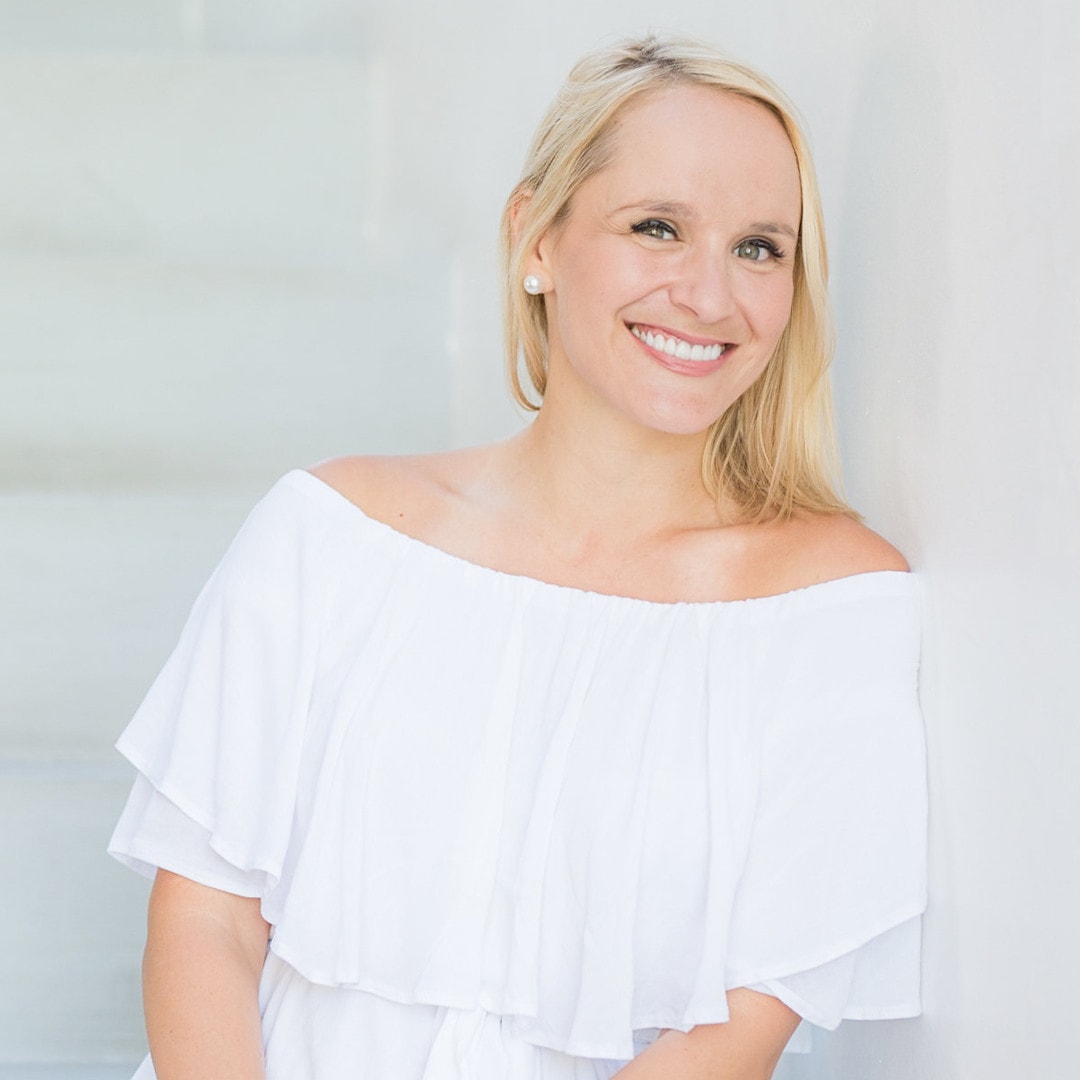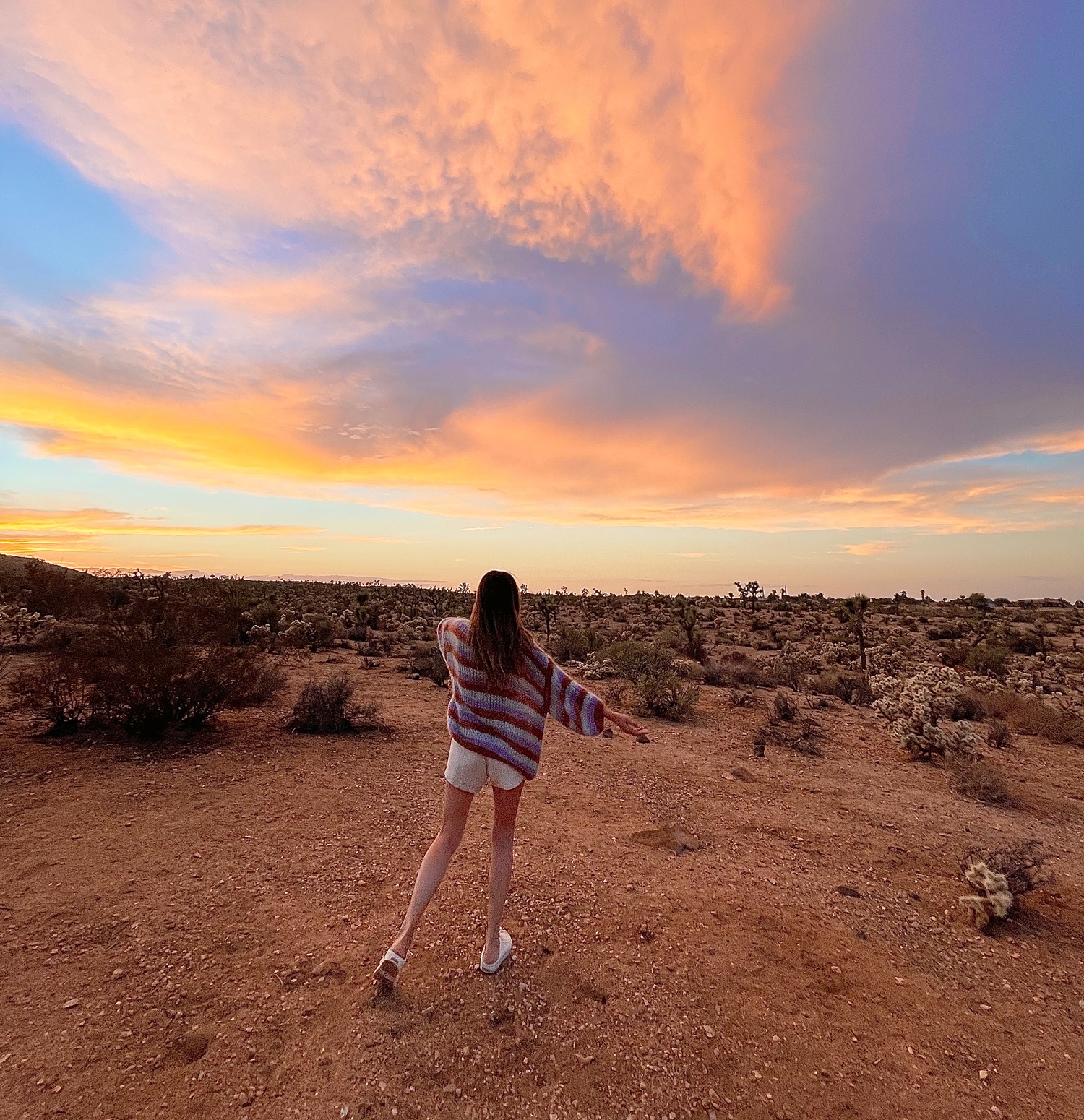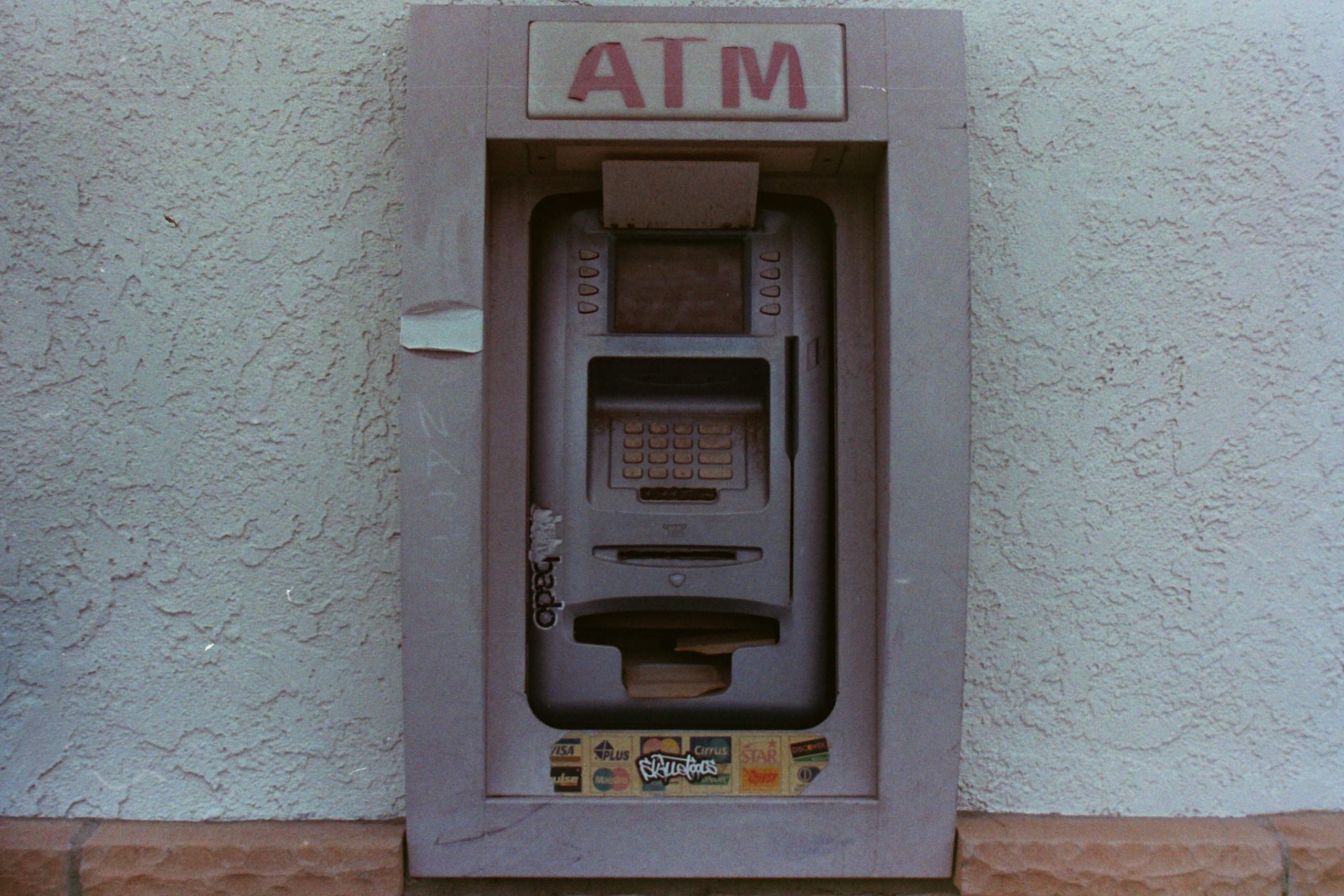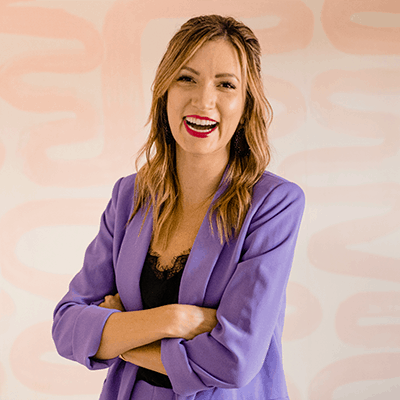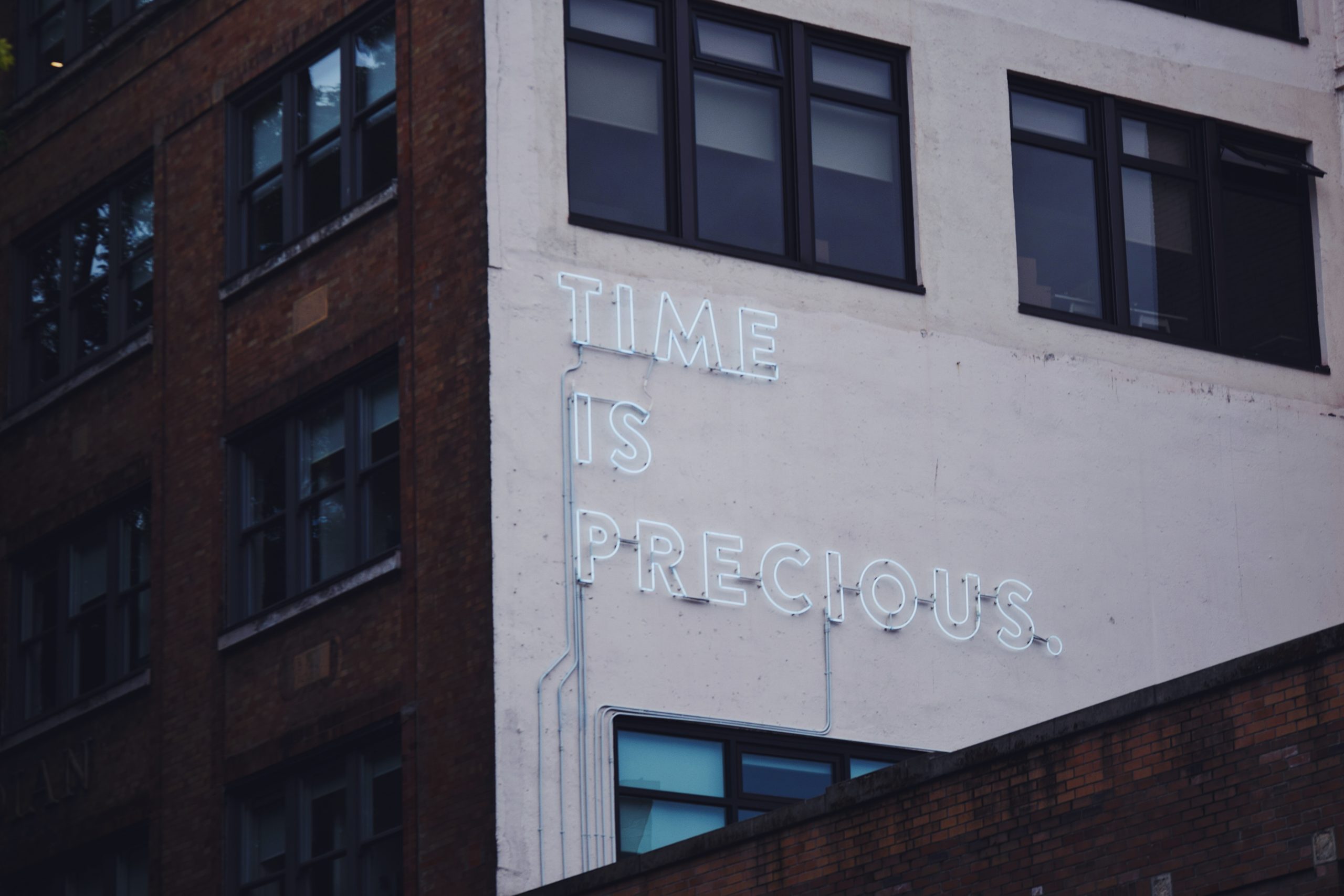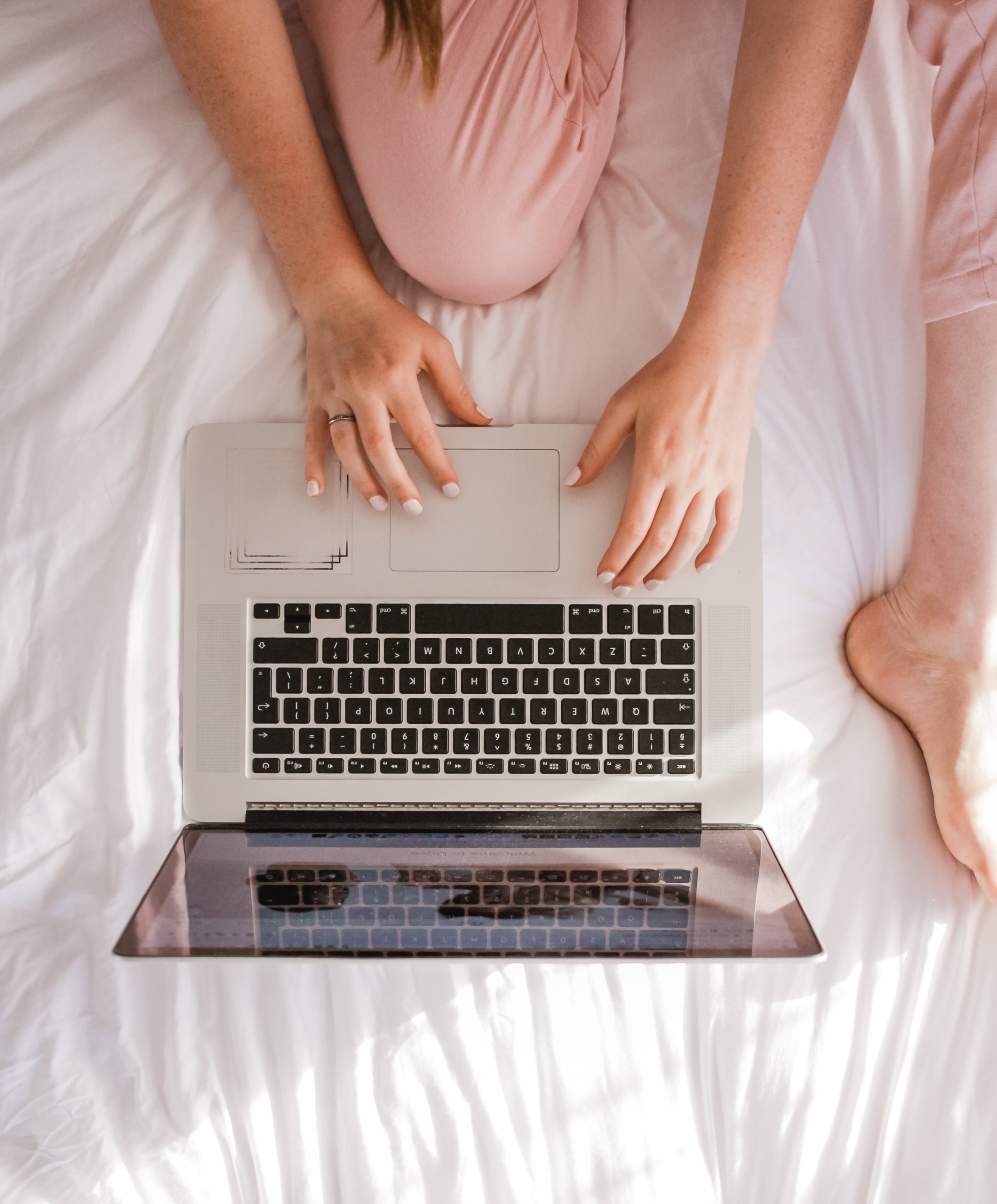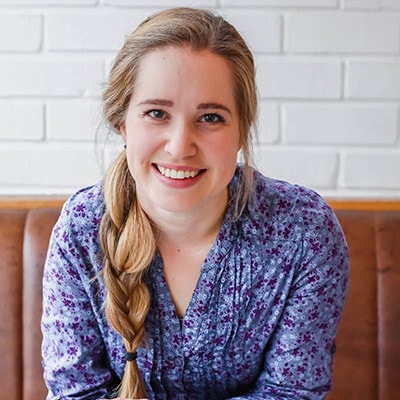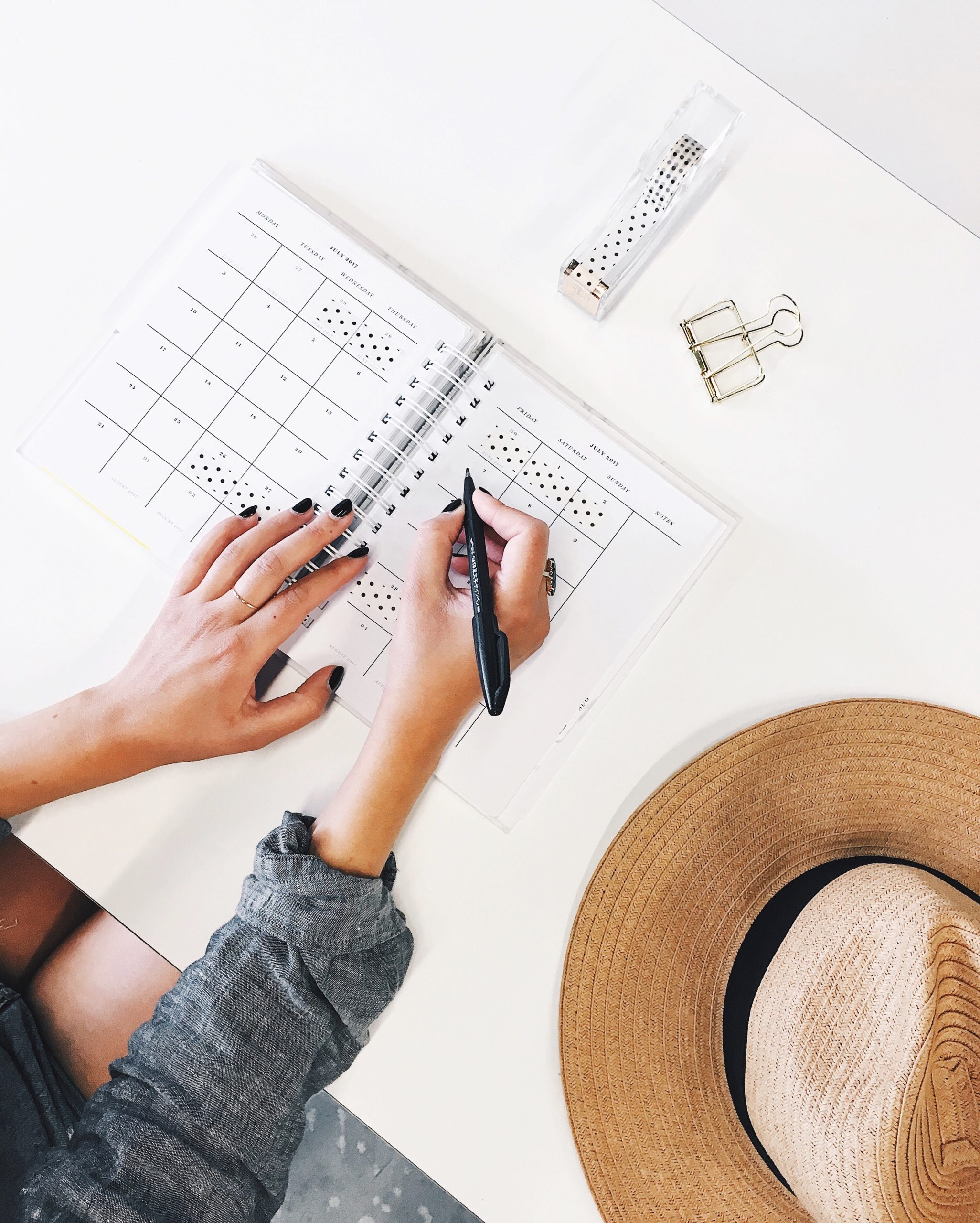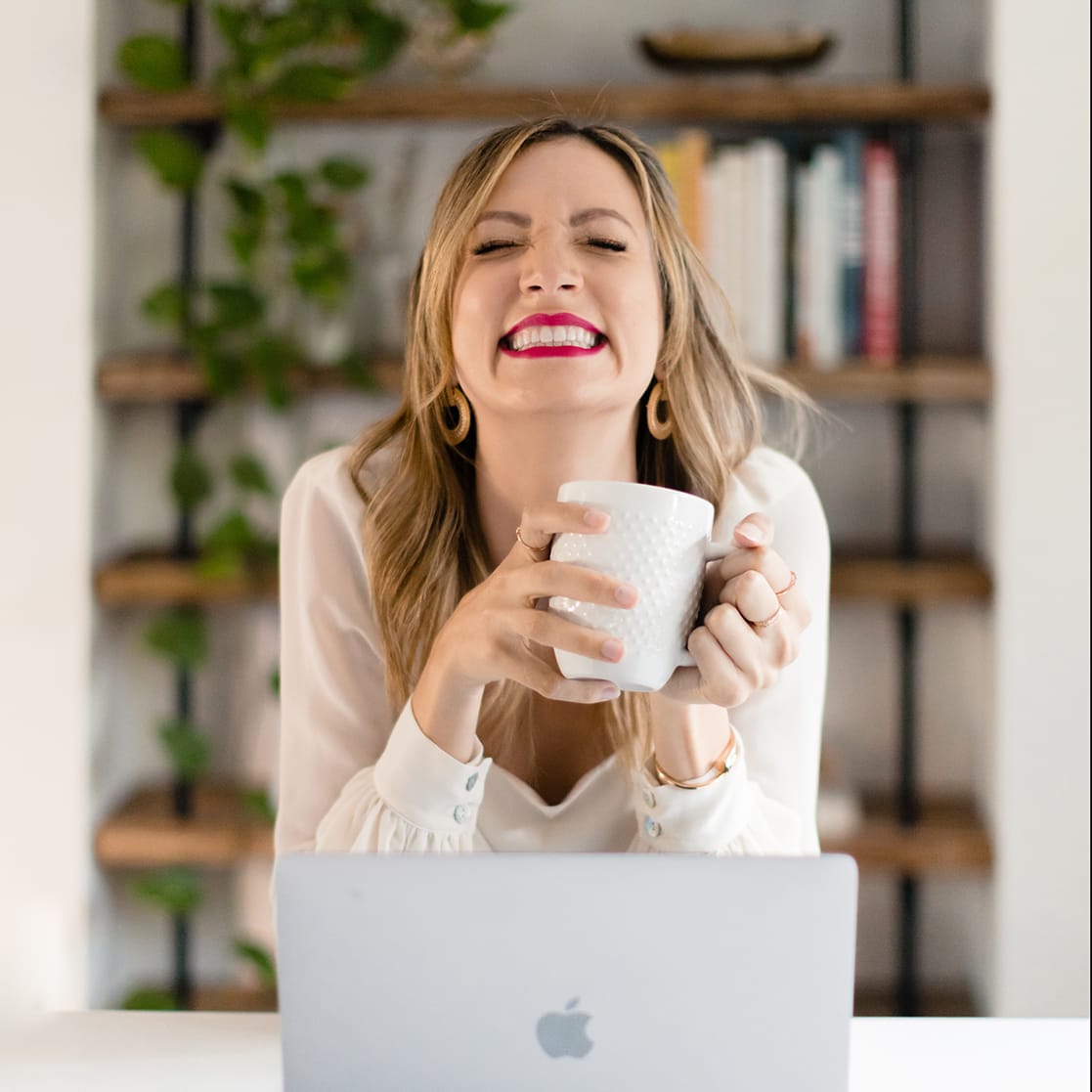Tune In to the Episode: Apple Podcasts | Spotify | Stitcher
Can you imagine all of the things that would be possible if you stopped questioning whether you’re “worthy” enough for them? If you could learn how to truly trust your inner guidance? If you could stop seeking approval from everyone but yourself?
What kind of possibilities would open for you?
Well, I hope you’re ready to find out! Today’s guest can help you do just do that…and, in fact, she wrote the book on it. 🙂
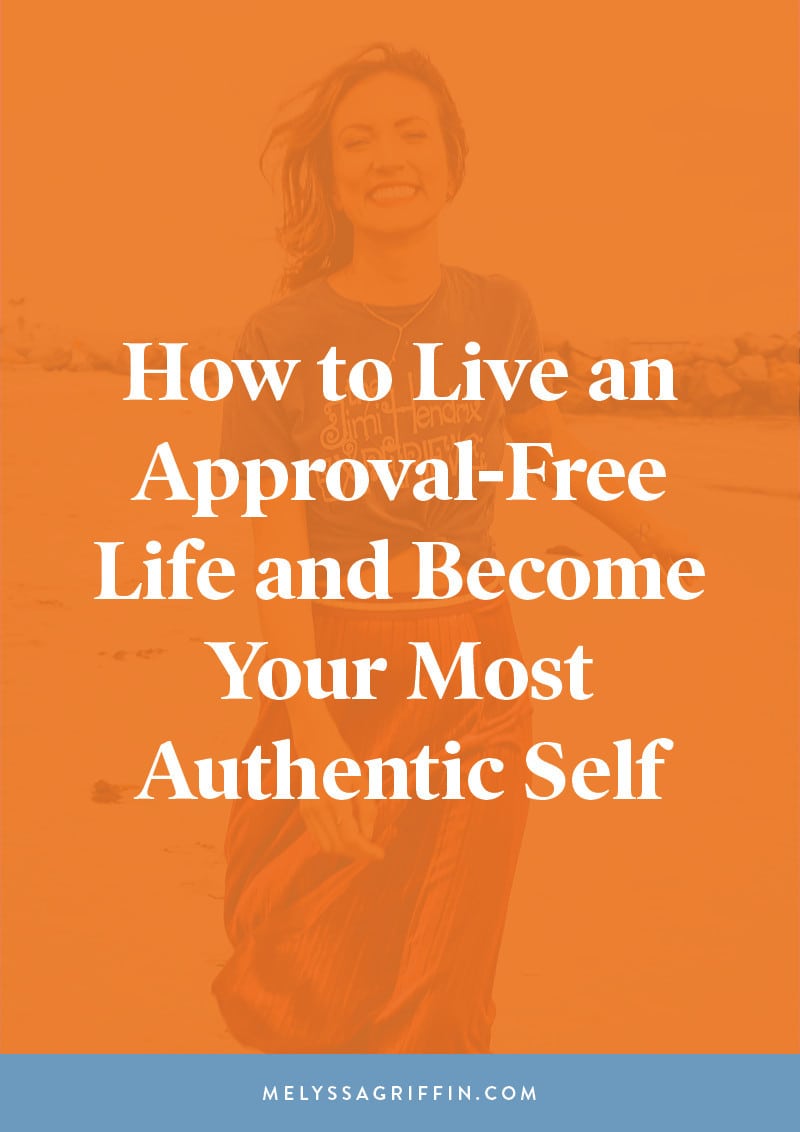
Susie Moore is the author of the newly released book, Stop Checking Your Likes: Shake off the need for approval and live an incredible life. Her work has been featured in places like The Today Show, Forbes, Cosmopolitan, and heaps of other outlets. And most importantly (to me, anyway): she’s one of my dearest and closest friends.
As a digital course creator, publicity genius, and life coach extraordinaire, she knows all too well about the limiting beliefs and need for approval that keep us from getting our shine on. Yet Susie has learned how to tap into her own confidence to “feel the fear and do it anyway.”
It’s her own willingness to get uncomfortable, experience negative emotions, and trust that she can overcome them that has allowed her to keep showing up and putting great work out into the world.
…But how?!
Well, that’s what we’re chatting about in today’s episode. 🙂
And as Susie says, “human life is meaningful — our worthiness isn’t a question.” Get ready to walk away feeling inspired to put yourself out there, face your fears, and live the life you deserve.
Listen to the episode below:
This episode discusses topics like…
- A simple practice that you can do to reconnect with yourself when doubt creeps in.
- Why one of Susie’s core values is “fun,” and how she allows pleasure to guide her decision-making.
- Susie’s unique definition of “confidence,” and how you can become a more confident, unstoppable person.
- What true ownership looks like, and why taking responsibility for your life will change everything.
Ready to break through the roadblocks holding you back from “The Thing” you really want to do? You’re in luck! Because I’ve created a free, 5-day challenge to help you remove fear, ditch doubt, and move from less overwhelm confidently into more results. Click the image below to sign up!
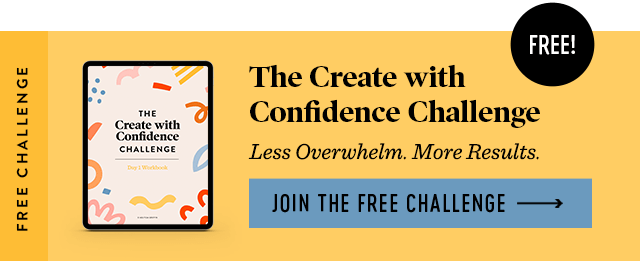
Links from the episode:
- Stop Checking Your Likes Book
- Susie’s Website
- Susie on Instagram
- Register for the free, at-home Limitless Entrepreneur retreat here!
- Follow me (Melyssa Griffin) on Instagram for honest conversations about business, mindset, and my life.
- Follow the Limitless Life™ Podcast on Instagram for new episode releases and wisdom on how to live a life with no limits.
How to subscribe + review:
Want to be the first to know when new episodes are released?
Also, podcast reviews are pretty darn important to the iTunes algorithm and the more reviews we receive, the more likely we’ll be able to get this podcast and message in front of more people. I’d be extremely grateful if you left a review right here letting me know your favorite part of this episode.
Share on social?
Did this episode help you expand what’s possible for your life or business? Do you think your social media followers may learn something, too? I’d be forever grateful if you shared it on social media. 🙂 If you do, tag @melyssa_griffin and @limitlesslifepodcast so I can repost you! Woohoo!
Whose approval are you currently seeking in your life or business? How would your actions change if the only person’s approval you were seeking was your own?
Thank you SO much for being here, sweet friend. I’m honored to walk this journey with you. See you in the next episode!
xoxo
Melyssa
Melyssa: Hey Susie, welcome to the show.
Susie: Melyssa, you know I love any chance to speak to you, so thank you so much for having me. I’m just delighted to spend some time with you now.
Melyssa: Oh, my God, me too. We are living in the era of social distancing right now, and so I couldn’t be more thrilled to have a conversation with you. And just learn more about the things that you’ve been sharing, because you recently came out with a book, Stop Checking Your Likes: Shake Off the Need for Approval and Live an Incredible Life. And you are one of my dear friends who I feel like totally embodies this message of letting go of what other people think of you, and just be who you are.
Melyssa: So this book, I feel like couldn’t have come at a better time for the world, because there’s just so many of us who are living in this need for approval and almost abandoning ourselves in a process. So I’m excited in this conversation to really dig into that topic and just a lot of the other things that you share about, too.
Susie: Yay.
Melyssa: Yay.
Susie: Me too. Can I say as well? I feel like you’re a very good example of this living with your way, knowing kind of what’s important to you, not being afraid to do things that maybe other people would be too afraid to do. If it feels right for you and you’re following your intuition. So I think that you could get this subject in your likes tattoo.
Melyssa: Was that a really smart way of marketing your book to me? I’ll be part of the street team and I’ll get the tattoo.
Susie: If you love me, you’ll get the tattoo.
Melyssa: Yeah.
Susie: But you’re absolutely an embodiment of this, too.
Melyssa: Well, thank you. I think that’s probably one of the reasons why we get along so well, and why I just love you so much. I want to talk about something actually a little random, but I saw it in your book. And a few months ago you texted me and said, “Will you send me a photo of you as a child? Like under five years old photo and just text it to me?” So I did, and I asked you, “What’s this about? What are we doing?” You said that you want to be able to … When I’m doubting myself or when I’m not really being my full embodiment of who I am, when I’m getting caught up in my inner critic, you’ll text me that photo of my little me and remind me of who I really am.
Melyssa: I was so touched by that view, just using that as a way for me to reconnect with myself. I saw that you talk about this in the book under a section called Loving Little Me, and I love that.
Susie: Yay.
Melyssa: Can you tell us a little bit more about this process and how people can actually do this for themselves, too?
Susie: Yes. I love looking at childhood photos of anybody, including myself, because isn’t it just the sweetest, innocent, most real version of us?
Melyssa: 100%.
Susie: Before or all the beliefs all sank in from whoever, before we learned to not trust people. And before we thought that, yeah, there are limits in terms of what’s possible. I think, looking at a childhood photo of ourselves is such a good reminder of first of all, the fact that we need to take care of this person, that we love them, and that they deserve … I mean, what would you tell a child that they don’t deserve? You wouldn’t be, “That’s not for you. You’re not good enough. No, sorry. The other kids, they’re allowed it. You’re not allowed it.” And we wouldn’t tell that to any child. No, certainly not ourselves as a child, but we do that as an adult.
I feel it’s a really, almost a bit of a shock it can even get you, if you’re in a difficult period and you’re being very hard on yourself, or something’s going wrong and you can’t make sense of something, or you’re even confused. To just see the little you that is still you, just with a few more years, and have some self-compassion. Reconnect yourself, and frankly, go a little bit easier because it’s amazing how hard we are on ourselves, all the time. The things that we say, what we think. Even the abuse that we take from other people sometimes. I feel like whenever I see little me, I feel protective of her and I love her. And it puts you back in a very nice grounded place.
Melyssa: I love that idea, so brilliant. And what I think of, too, when I think of this little me activity is, that the little you is your highest self, your most authentic self. This is your spiritual self, if you will. And it’s connecting to that intuitive wise version of you. Even though you’re looking at a photo of yourself as a child, that’s the you before the world made you into this other person. And I love that.
Susie: Yes. And you actually, I remember once did a meditation for us, I remember, which was a child meditation, too. I remember just thinking that that was really powerful, because it’s a coming home feeling, right? And knowing that you existed. The fact that, I mean, when you think about the miracle that is life, I think about how your parents met, how their parents met. All these things had to come together for you to come through to live this many years. It’s a miracle.
Susie: I think it’s so easy to forget that, and to just be caught in the mundane of it all. It’s a miracle to be here. And that kind of childhood connection, it just feels like, I have a purpose. We all had a purpose and a place to be before anyone else had an opinion, before anything happened. And I feel it’s so steadying.
Melyssa: Right. Yeah. It just brings you back down to earth, and grounds you. You had this quote in your book that reminds me of this and you said, “We have this amazing wise eternal intelligence available to us at all times. But what do we do instead of checking in with ourselves? We check our likes on Instagram. And we’re waiting for external support and approval, and we become dependent on external validation.” Yes. I couldn’t agree more.
Susie: Right. And you know what? I think it’s frankly a little bit cheap and a bit lazy. When you think about it, when it comes to, for example, social media. And that social media isn’t the enemy. I mean, by comparison, all the feelings that we have, observing others, listening to their opinions about us, this is age old. It’s not just since social media became these very active platforms. But I think as if, when it comes to just diverting your attention, posting, doing the things that can give you a quick win or a quick dopamine here. Or just judging others, if that kind of gives you a feeling of superiority sometimes.
Well, there are uncool things that go on behind the scenes in social media. I think, isn’t it just absurd a little bit? The power we abdicate, the focus that we just allow it to be completely absorbed down the scroll hole? When, as a human being, when you think about it, I joke in the book, I say, “Look, if aliens came to this planet and they saw, “Wow. Look at these humans with their brains and their really intelligent bodies with all those cells. Wow, this incredible earth.” And noticing us all just with our head down, shoulders down, looking at our phone, deciding that we can feel good or not good by day based on a little heart icon. They would leave. They would leave planet earth. They would be like, “There is some absurd shit going down on that planet. And there has to be somewhere else because they’re not quite right.”
I just think sometimes, that we need a bit of a perspective shift like that to understand … Everything we think of them, being this, right now the power that we have over our lives, our focus, everything, and we give a lot of it away. And I think it’s so easy to do, but it takes a bit of work and it takes stepping out also of a little bit of a laziness place, to get on track with yourself.
Melyssa: Mm-hmm (affirmative), right. I love that visual of the aliens coming down. And it really does, it makes me think, we do have such infinite intelligence in our minds, in our emotions, our bodies, the way that we are able to create and connect with other people. And how much of that we’re giving away. We’re literally just squandering when we open our phone or whatever it is that pulls you away from yourself, and causes you to start comparing, and thinking that you’re not good enough. It’s like, Holy crap, you’re so good.
Susie: Exactly. And you think, “Oh, this is what I believe underpins all suffering.” which is quite big. I mean, what if they could?
Melyssa: All right, let’s hear it, Susie.
Susie: I mean, if ever you work as a coach, or even just work with anybody solving a problem, you get to, okay, what’s beneath that problem. Okay, what’s beneath that? What’s beneath that thing that you’re saying? Beneath, beneath, beneath. The bottom line is always worthiness.
Melyssa: Right.
Susie: Your feeling of worthiness. And, it’s so interesting. I mean, I tell, I guess, another little bit of a joke in my book. I like to talk about serious things in a light way. And I say, “Look, just say that you went hiking in LA somewhere with a group of people. And then you went missing. It was getting dark, you went missing. They didn’t know where you were. Would your group of friends, or group of strangers, whoever you’re with, say, “You know, wait. Do you think Melyssa is worth rescuing? Let’s just do a quick analysis. Is she verified on Instagram? Let’s see, what’s her follower rate? Did she pay her taxes on time?”
Whatever it is that we judge our worthiness on, on a human level, think about it in a very physical way. Even if you were a felon, you would be rescued. Human life is meaningful. Our worthiness isn’t a question. We didn’t ask to be here. We are here. We deserve to take up space. There’s nothing to apologize for. And I think that if you could even know that you have nothing to prove … Prove, prove, prove … And if your worthiness was just something that you could accept as undeleteable and permanent, no matter what you have done or will do, then I think that your life can just change a lot. Even with a 10% understanding of that.
Melyssa: Wow, that gave me chills, yes. Completely agree. And I think the beautiful thing about that example is, if you were lost and needed to be rescued, it wouldn’t just be your deepest friends and family members who would be rescuing you. If some stranger learned that somebody on the hiking trail was lost, they would go find you.
Susie: Yes.
Melyssa: Because your worthy inherently. It doesn’t have to be even that people like you. You are worthy.
Susie: Yes. And people would risk their life to get you.
Melyssa: Right.
People who don’t even know you.
Susie: Who don’t even know you. No matter what, no matter your age, no matter anything. All the things that we think really matter or determine someone’s worth, they’re meaningless. We’re not the same, we’re all different, but we’re equal in this. And, I mean, death is life’s greatest equalizer, which is why I love also talking about death. But, I mean, if that’s true in the physical world, it is true. It is just this truth. I just think that we forget this all the time. We never remind ourselves. No one reminds us, and we think that it’s always based on how well we’re doing, how others perceive how well we’re doing. That’s where we get the worthiness from, which is completely temporary and a total recipe for misery.
Melyssa: Right.
Susie: Because even if things are going well and you’re on a high and people love you, that can change.
Melyssa: Right.
Susie: We see it again and again, all the time, with the celebrities, with anybody that we know. We have highs and lows in life. And the unshakeable truth is the same, but I think we love to forget.
Melyssa: Right. I actually really like that perspective, too, that things just change. And that it doesn’t have to mean that you’re a great person or a bad person. You’re just a person, and you’re inherently worthy. And so, one thing that I think you live by so well is, don’t take life so seriously. Don’t take your [crosstalk 00:12:04] so seriously.
Susie: Yes. Why is it so hard to do that? For me, having, I think, just a general likeness, especially when things are difficult, that’s when we need it the most. I think it’s such a struggle. Because I put a real focus and premium on pleasure, I think pleasure in my life, having fun, having a good time, I always sometimes feel a bit of a bitterness from people. Which is interesting. It’s like, “Oh, why does she think she can have a 3:00 PM happy hour, or just go to the beach on Monday?” Whatever it may be.
And, I think it’s because we don’t allow ourselves that. Because that worthiness, you got to earn it. If I’m not producing, if I’m not suffering, however that looks. Or being seen to be doing something which is showing it’s okay that I’m taking up space, then it’s not really safe for me to be doing it. And I think that that’s one of the reasons I’m even a little bit over the top, in terms of the joy and showing it, and doing what feels fun and right for me. Because I think it’s really good to have examples, and there aren’t enough examples.
Melyssa: Yes. [crosstalk].
Susie: Do you agree?
Melyssa: I would agree with that, yeah. It reminds me of this Mindy Kaling quote that you’ve probably heard before. But she was saying that, “Sometimes people’s reaction to me is that, ‘I hate how she thinks she’s so great’.” And she said “But it’s not that I think I’m so great. I just don’t hate myself. So I do idiotic things all the time. I say crazy stuff I regret, but I don’t let everything traumatize me. And the scary thing I’ve noticed,” she says, “is that some people really feel uncomfortable around women who don’t hate themselves.”
Susie: Mm-hmm (affirmative). And isn’t that tragic? It’s, “Okay, if I hate myself, then am I going to make you also a bit more safe?” And I think that therefore, if someone is joyful and they … I mean, I actually used to dull it a little bit. I’d be like, “Wow. I feel like I don’t want to show how happy I am.” Or I don’t want to be too, even exuberant, because maybe it’s a little … It doesn’t really fit anywhere.
Susie: Because you know what it’s like. When you just said you’re not taking things so seriously, that’s the world that we’re in. We love to take things so seriously. And it’s so funny because reality’s such an interpretation. And when you realize that the things that we worry about, we can often laugh about, or we can frankly not think about. Balance our thoughts, distract ourselves, think about something else. That’s all available to us, and we’re just not choosing it.
Susie: I feel like being an example of somebody who is optimistic, has a good time, puts fun, puts pleasure first, I think that that’s really healthy. And I would say if somebody’s like, “Well, I can’t do that, I can’t do that, I can’t do that,” I would ask, “Why not?” And if you keep tricking down the questions, we always come back to this worthiness, the issue of worthiness.
Melyssa: Right. I’m really grateful to be having this conversation on this podcast, because the name of it is Limitless Life™.
Susie: Yes.
Melyssa: And to me is really is, what does limitless mean to each of us? And how do we either embody that or push it away because we’re afraid of living limitlessly? We’re afraid of really stepping into what that might look like, because it might be different than what the status quo is. And that can be really terrifying for a lot of people. You’re saying your limitlessness is prioritizing pleasure and fun, and not taking everything so damn seriously. And that that can really go against the grain for a lot of people. So I’m grateful for this because I think it’s something that we all struggle with in our own ways, of whatever that looks like for us.
Susie: Mm-hmm (affirmative). Yeah, I completely agree. I love this podcast, and I would think, I mean, it’s a good question. What does a limitless life™ look like for each person? It’s always going to be a bit different, but I feel like the limitless part of it is always going to be associated with this feeling of freedom. [crosstalk 00:16:06].
Melyssa: Right.
Susie: And freedom, isn’t that just the best? I think the best feeling is a feeling of freedom. I think this is why we seek money, is why we seek really anything, because whenever we have more options, we feel free. And I feel as if freedom is available in the present moment to almost everybody all the time. We just aren’t seeing it. It’s not that we’re even ignoring it on purpose. We just don’t realize how completely free we are. We have such free will, what we think about, how we spend our time, where we direct our focus. Even in quarantine right now. We’re very powerful with what is that we choose to do, think, give our attention to.
Melyssa: Right. I love the word freedom. That’s such a guiding principle in my life, too. And I think of it, too, as, it doesn’t have to be this groundbreaking thing. Freedom could be turning down the playdate with that mom that you just don’t get along with, and you always say yes to hang out with her because you feel you have to. That can be freedom, saying no.
Melyssa: Freedom can be taking a trip that’s to a place that’s a little bit more expensive, that you never allowed to do that before, because you always felt like it’s a waste of money. It can be buying the more expensive pasta noodles at Whole Foods. Freedom can be these minute moments that really, as they come together, create this limitless feeling.
Susie: I completely agree, and I think, why not start with those things, especially? I think one of the best things to do some days, is to just give yourself a day off, as well. If you have nothing commitment-wise that’s going to be too tricky to change, that’ll be more of a headache than actually fun, then to think, “I’m just going to put the TV on first thing and watch a scary movie at 9:00 AM on a Wednesday.” Why not?
Melyssa: A scary movie?
Susie: Yeah, why not?
Melyssa: Maybe if you’re a lunatic. But, I could never.
Susie: Or being spontaneous. Instead of saying, “Here, this is my day, it’s all scheduled,” thinking, “What do I really want to do? Is there some space here to do something else?” And just, again, not making it all so serious, and making it all about the to-do list and following through. But just feeling around a little bit, thinking, “What would just feel good?” And I tell you there are always so many options.
Melyssa: Mm-hmm (affirmative), yeah. The guiding mantra for me has always been to move in the direction of what feels good. And to not overthink it, to not have to look 10 years into the future and hope that it turns out that way. If it’s feeling good now, then I’m going to keep doing it. And if it starts to not feel good, then I’m going to ask myself why and potentially move in a new direction. I feel like it takes the pressure off.
Susie: It does take the pressure off. And this is also where faith comes in, however anybody interprets that. The word confidence comes from this Latin word [Confeda 00:18:59], meaning to trust, meaning having faith. And this is what, therefore, a confident person does. They trust the leaning, they trust the intuitive nudge towards something, because it feels expansive. It feels like, “Hmm, this feels like it’s the right thing.” It’s impossible to explain, until you experience it, and we all experience it. A lot of us just shut it out, because it’s not appropriate, someone won’t like it, it’s not what everybody else is doing. But we just have this incredible guidance that always will just give us the next right thing, the next right move.
Melyssa: Yes.
Susie: And that’s all you get. You don’t get the thing next week, or the thing tomorrow. It’s, what feels like the right thing now? What feels like the good thing, for me, right now? Knowing that you came into this world alone, we all came into this world alone, we will leave this world alone. Our path will be filled with people and people will walk it with us. But it’s our path, no one can walk it for us. Nobody knows what’s inside of us or what’s right for us. Nobody, not even your best, best friend, your spouse, your mom. Even somebody who knows you so thoroughly doesn’t know what’s inside of you.
Melyssa: Right.
Susie: So, it’s impossible to outsource or crowdsource your positions, your life. And it just takes some courage to do this. And courage, confidence, I use them interchangeably, but I’ve come up with my definition of confidence, which I think is the most simple, easy way to explain it. Can I share it?
Melyssa: I would love that.
Susie: I have confidence, is my favorite thing to talk about. I mean, I’m obsessed with it, because I know it’s the single differentiating factor between someone who gets to be to and have what they want, and somebody who doesn’t. Confidence will underpin it. And, what I’ve realized is that, we get confidence so wrong. We think that if we picture what is a confident person, often it’s a man on stage, who just seems really knowledgeable and funny. Or somebody at a party who can really dominate a conversation and be really funny or witty, or whatever.
Susie: And look, those people might be confident. But confidence is simpler and it’s even more quiet than that. And it is simply the willingness to experience negative emotion. That’s it. Think about it. If you’re willing to be rejected, embarrassed, humiliated, uninvited, whatever the scary emotion is … And remember, most of us will do anything to avoid pain … If you’re willing to experience negative emotions, like positive emotions, a temporary move through the body, knowing that the worst thing that can happen is a feeling, and a feeling won’t kill you, what wouldn’t we do?
It’d be okay to disappoint someone, because you’re following your path. It’d be okay to maybe not do the popular thing, because hey, you’re being guided elsewhere. So, if you’re willing to experience negative emotion, the world belongs to you.
Melyssa: Ooh, yes. First of all, I love that definition because it’s so different than we’ve been taught about confidence. And I love, too, what you’re saying about all emotions, positive or negative, are they’re temporary, and move through your body. We apply, meaning to them, with conscious thoughts, but we don’t have to. They could just be feelings in our body. And so when we see it that way, it can become so much easier to just do the scary thing, let yourself feel it in your body and then let that stuff go.
Susie: Yeah. And so that is really fun, just to test your own negative emotions. When I do things on purpose I know that will feel uncomfortable, just to keep myself strong in that area.
Melyssa: I love you.
Susie: Do you want to hear a couple of weird examples? They’re not very impressive.
Melyssa: Please. Yes.
Susie: Okay. If I go to a barre class, typically what happens is, everybody goes in, everyone sits down, and then when the teacher comes in and puts on the music, we stand up. So I always like to get a spot at the front, and I will just at a random time, just stand up. And then sometimes people think I’m the teacher, because I’m standing up. And they’re looking at me, and I’m like, “No, I’m just standing.” Because it’s weird, everyone’s looking, “Why is she standing?” I mean, I’m not hurting anybody, but it’s a little bit uncomfortable for me to be standing. That’s the only reason I do it. Because it’s uncomfortable for me.
Susie: Another thing that I do is, I ask for samples and/or discounts, even when I know I won’t get them. Because the important thing is the ask-
Melyssa: That’s really interesting.
Susie: Yeah, the important thing is the asking. That’s my confidence job done, 100%. The outcome, what comes from that has nothing to do with me.
Melyssa: Oh, I love that idea. I was just thinking, you’ve told me this before, how you always ask for discounts. And I know when you told me before, in myself I was thinking and feeling, “I hate asking for discounts. What are they going to think of me? They’re going to think I’m cheap or poor, or whatever.” And this goes back to my own story of growing up as a child. And so, that’s a really interesting example, and now I really want to go ask for a lot of discounts.
Susie: Yeah.
Melyssa: It flips it on its head.
Susie: It does. And by the way, you’ll save a lot of money, because a lot of the time you don’t even realize how much is available. Because, remember, if you don’t ask, the answer’s always no, in regards to anything. Yeah, you’ll get a lot of no’s but then you’re like, “No is nothing.” You just keep going. And there is a couple of weird things I like to do, just to keep me in a place of discomfort, and to remind me that, I mean, so what? Nothing happens.
Melyssa: Right. And it reminds me, too, of what other people think of you has nothing to do with you. If you’re standing up in a barre class, and people think you’re a weirdo, then that’s them. They’re bringing their own story of thinking that standing up in a barre class is weird. Or if you ask for a discount, and someone thinks you’re cheap, then they’re also bringing that experience. Because they could come at it from a neutral place of, “She’s asking for a discount. I don’t have to apply this story to it.” And it’s all about other people’s experiences, but we oftentimes will embody it and use it to validate our own stories about ourselves.
Susie: Oh, yes, everything is just through that such a deeply personal lens. There is no reality, there is only interpretation, through our own perspectives. And it’s funny, in the book I actually share a couple of examples of this. When I turned 30, I was writing an article saying, “You’re 30. Lessons I learned by the time I turned 30.” And I asked my friends who were in their 30s, “W hat were some of the lessons that you’ve learned?” And I actually highlight this in the book because it’s so interesting. One girl said, “No carbohydrates after 2:00 PM.” That was a lesson. Another girl said, “Get health insurance while you’re young.” Another girl said, “You don’t have to have children if you don’t want to.” And somebody else said, it was a skincare, so it was some type of skincare piece of advice.
Susie: And the first one was a former fitness model, by speaking about carbohydrates. The next one speaking, the next gal who was talking about health insurance, she’s a really savvy investor. And she’s all about winning the money game. The next was a woman who’s child-free and very open about it, and talks a lot about women’s freedom and decisions, the options to choose. And then the next is a beauty blogger. So all of the advice is deeply coming from what’s happened to us, what we value, our position in the world. And none of it’s true or not true. It’s just our truth, which we’re choosing.
I just thought it was fascinating. And when you ask a question or hear anyone give an opinion or a comment, you have such an insight into them.
Melyssa: I love that. I read that part of your book this morning, actually, and I thought it was a brilliant example of how, whenever we ask people for advice or for their opinion, it’s literally coming from their filter of their learned experiences. And that, going back to what we were talking about earlier, about outsourcing your decisions, versus trusting this wise internal part of you, is actually not productive. Because, you’re outsourcing your decisions to somebody else’s life experience, and not trusting what you have learned and what you would love to do and how you would love to live your life. So it is very fascinating.
Susie: Isn’t it? I mean, can you imagine having no carbohydrates after 2:00? Come on. What?
Melyssa: My body craves carbohydrates.
Susie: That’s certainly not for me, that one. And I think, too, this is also why, especially when we don’t want to have compassion for people, In A Course of Miracles, it says that every act, every single act, is either a demonstration of love or a call for love. And so when somebody, and I speak a lot in the book about, it’s okay if people don’t like you. And I speak there about what the criticism I’ve received. And essentially remembering that no one at their best is criticizing you. Nobody who feels healthy in that moment or happy in that moment is going to be throwing shake your way. It’s always going to be a sad person, someone who’s confused. Somebody who just isn’t feeling strong, so what they can they sling to bring us down?
And, I really feel like this is something that, it’s easy to say, but then to be like, “Oh, [inaudible 00:28:09] that dick,” whatever it is, whatever comment or opinion they have of you, then there’s something I’m really learning. And I feel like it’s a really compassionate place to be. Because also, when I was growing up, I know when my mom had a lot of issues because of my dad, his addiction, us moving around, living in various shelters. The things that my mom would say and the anger that she had towards specifically my dad’s mistress, I just know that my mom was in so much pain. She was in a lot of pain. She’s actually still there. She still has her stories.
And she’s allowed to have those. It’s entirely her life. I feel as if when, sometimes when we hear information that we don’t want, or we think that’s somebody’s trying to hurt us, to know that they probably just need more than anyone, the compassion that we don’t want to give them.
Melyssa: The compassion that we don’t want to give them.
Susie: Yes, right.
Melyssa: I actually, I was at Staples, an office supply store recently, before one of my retreats, and I was buying 50 binders and a bunch of other random things, like a flip chart and an easel. And I ordered it online and it said it’d be ready to pick up in about an hour at the store. And so I went to the store to pick it up, and, it was a lot of stuff. And they wheeled out this cart that had all of the binders and the flip chart and everything in it, but nothing was bagged. It was overflowing over the cart, tons of thrown-in binders. And she’s like, “Here you go.”
[inaudible ] I was stressed because it was the day before my retreat and I’d just found out that I would be leading it by myself, as opposed to having some team members there. So I was a little stressed, and when she wheeled out this cart with all these binders unbagged, I was like, “What am I supposed to do with this?” And I asked her, “Do you have a bag that I could put these in?” And she said, “Well, you have to pay for the bags.” And I was like, “That’s fine.” And she said, “Well, it’s going to be more than three bags.” And I was confused why she picked the number three. I had no idea.And I said, “It’s fine, I’d love some bags to get these in my car.” And we were bagging these binders and she was just in a sour mood, and I was in a sour mood. And I saw her nails and she had these brightly colored yellow nails. And I was looking at them, and I knew, if I’d just told her, “I love your nails. Those are such beautiful bright nails. They make me feel happy.” I gave her a compliment on the nails, it would diffuse the entire situation. She would feel more at ease. She’d feel more seen. I’d feel more at ease for recognizing her.
And I think about that moment a lot, because I didn’t say anything. I left the store feeling bitter, and I’m sure she was feeling a little bitter about the whole thing, too. And I think about that from time to time of, “I had the power to choose compassion and I didn’t.” And not to be hard on myself, but more to realize and remember that compassion is available at all times, and I’m either choosing it or I’m not choosing it. And how my life would be better if I choose it more. And it felt like it took a lot of courage to compliment her nails, because we were both in this, that white knuckle place of, “Goddammit, just bag my binders.”
Yeah, so those moments that are really small, that happen all the time, where it feels courageous to have compassion, but we need to, because that’s how we live a really beautiful, compassionate life.
Susie: Yes, this is an excellent story, and I’m very happy that you mention that you didn’t say anything. It wasn’t within you at that particular moment. With a bit of reflection, again, coming back to yourself, you’re like, “Oh, that thing, it could have diffused it. It could have lifted her and lifted me.” Isn’t that amazing how powerful we are?
Melyssa: Right?
Susie: What a sentence can do?
Melyssa: Yeah.
Susie: What uttering a few words can do. I mean, there’s an old saying, “If you want others to be happy, practice compassion. If you want to be happy, practice compassion.” Because, if she’s uplifted and receives your compliment, you’re happy. There’s no such thing as just only giving pleasure. It’s a gorgeous part of being human, that we’re rewarded when we do good things. See, you can choose this or you can choose that. And there will always be times when we’re not capable of choosing the compassionate thing. There’ll always be those days, those moments.
Susie: But, yeah, like you said, the most important thing is remembering that, just knowing, the knowingness of it being available.
Melyssa: Right. The knowingness of it being available. I love the way that you put that. You have a part in your book, actually, that’s all about taking responsibility, and you have this quote that feels very relevant right now. But you say, “When you pay attention, you realize that almost everything that’s happened in your life is a result of choices you’ve made.” And then you go on to say that, “What you’re not changing, you’re choosing.”
Susie: Mm-hmm (affirmative), yes. It takes some courage to realize this, because it’s much easier to be, “Well, this person did this to me.” Or, “It’s because I had … ” Whatever kind of suffering with family, with friends, with life experiences and relationships. And I guess the reason I speak about this, the chapter’s called No Good News is Your Fault, is because, when we, again, abdicate any responsibility for things going wrong, we’re always going to be powerless for more things going wrong to us. Things happening to us, to us, and always feeling victimized then.
You might have some sympathy for a while, and that can feel loving for a short period, but then what? But then what? Congrats, great. What else can go wrong? What else are you not having power over? And, I think when we take full responsibility and we’re like, okay … And I see that being married to an addict, a gambling addict, very young. And how it would be really easy to have a whole story about that, how it was … I [inaudible 00:34:07] people to feel sorry for me, and I didn’t know and I was young, and I was taken advantage of.
And I don’t feel that way at all. I have zero self pity about that whole situation, because first of all, I did a naïve thing. I married somebody without really knowing them. That was my decision. I was young but still an adult. And then what? Then what? One year, two years, three years, still there, still me, but there’s no prison bars around me. Staying there, staying there, staying there, that being my decision. And then me leaving also being my decision at the time that I did.
If I had a sympathy story about it and felt victimized around that whole marriage, then wouldn’t I be living in fear of my next marriage? What could happen to me? It was so bad, the first experience was so bad, I’d either not choose it, or I’d probably choose the same thing again, because it’s easy to repeat behavior. And so, that’s not really going to work too well.
This would be a really bad time to abdicate power. In understanding that I made a decision young, it was the best I knew at the time. I thought I knew more than I did. I’m learning. And then taking full accountability for my now marriage, which is very healthy. And learning from my experience, not feeling guilt, not feeling anger, just feeling wiser after a difficult experience, but not blaming him or me.
Melyssa: Right. Not blaming him or me. I think that word, blaming, we can get so caught up in, because we look around the things that happen to us in our lives. And instead of saying “What’s here for me?”, we say, “Why is this happening to me?” And then we look for people to blame or to say, “They are doing it to me.” And pretty much always, we are choosing it in some capacity, in some capacity, and that can be a difficult pill to swallow when we realize that we’re choosing things in our lives that we really don’t want. But in some capacity we’re deciding that we’re going to stay there, and I love that quote, “What you’re not changing, you’re choosing.”
Susie: Yes. And it takes courage, again, because you have to say, “Where’s my part? What’s my responsibility here?” And that’s tricky. That can feel really confronting and it’s very easy to avoid that. But the sweet result is your freedom. That fabulous feeling when you’re like, “I chose that. It didn’t work out. You know what? That was a decision that was probably good that I made.” Or maybe, “After I realized something wasn’t healthy for me, I stayed too long. That was a mistake on my part.” Then what? Then you’re in this position to not do that again. And you have the power, and then you have the freedom of what’s going to be next. And that’s a really wonderful feeling.
Whenever you’re in a position of blame, there’s never freedom in that. However justified it feels, it never feels free. It might feel fair, but it never feels free. And even if it feels fair, and then what? What are the other consequences? Do you see how limited you are in a place of blame? So, freedom is the result, I think, of doing the courageous things and taking on the blame yourself.
Melyssa: Mm-hmm (affirmative), right, taking ownership for what happens instead of, almost in a way, outsourcing the ownership to somebody else. Because like you’re saying, when we blame other people, we think that life is happening to us. Then it becomes really easy to think that we have no control over what happens, that we just attract partners who don’t respect us, that we have clients that violate our boundaries. That we create this life that we have no control over, when in reality, we have control over only us, all of the decisions that we make. That’s the control that we get to have in life.
Susie: Yes. And that’s where your power is. This is always where our power is. Even though sometimes it can feel daunting, because you’re like, “Gosh, I’m quite powerful then.” Sometimes it can really scare us. You’re like, “Yikes, this is up to me. I don’t have to do this. I don’t have to do that. I can choose something else.” The freedom can always be a little bit overwhelming. And I mean, I would say if someone’s scared of doing it, just try it, take a little bite. Take a little bite. See how strong you actually are. We’re more capable than we think. We have the capacity to handle, to do, to decide, far more than we think.
Susie: And it’s okay to lead into trusting ourselves a little bit more. But it doesn’t happen if you completely shut down that part of yourself, and you give it away. Then it can never strengthen, it can never see the light. So, if you do some things, lean into yourself. See where can I be accountable now? Where can I make this about me, my personal power, my decisions, my energy, my focus? It can be a little daunting, but I swear, you won’t go back. There’s nothing to go back to. I think it’s the most liberating, sometimes scary place to be.
Melyssa: What about for people who are listening right now and they’re thinking of the thing to change about their lives, but they’re terrified? They’re like, “I know that I need to take ownership over the fact that I created this in some capacity. And I want to change it, but I’m fricking terrified.”
Susie: First of all, congratulations on wanting to make a change and acknowledging it. Some people never get there. They live their life, they never get there. They never get to the point of either knowing that change is possible, allowing just that scary prospect in. The only thing that I say, and I repeat this again and again, I would check in with yourselves on this. So don’t listen to me, but, you have a history with the universe, we all do. And if you’ve lived a certain amount of years, you’ve done some difficult things. You’ve overcome some difficult experiences, probably with other people, things that happened that you didn’t expect, that made you extremely sad, that made you question your life experience. I would look back and don’t discount how far you’ve already come to be here now. It’s so easy to think, “Oh, I don’t know, I don’t know. I couldn’t handle it.” You’ve already handled a lot. We all have in different ways, but we all have.
Susie: The other thing that I know is that the fear of consequences is almost always worse than the actual consequences themselves. It’s this anticipatory fear that is worse, the what can happen, what can happen. When you do the thing, I mean, think about this, again, look to your own past for this. The thing that happens … I remember, I used to always worry about my dad dying because he was a drug addict and he had health problems because of his lifestyle. And I always lived in fear of him dying, and I’d think about the conversations I’d be having with him, even in the moment when I was having them thinking, “My god, what if this might one of my last conversations with him? I can’t be angry with him.”
Susie: And I have a heavy feeling. Whenever I thought of my dad, there was a heavy feeling, because we knew that his life wasn’t sustainable for a very long time. And then when he died, when I was 19, he was 59, everything I felt beforehand was actually worse. It was still a shock. It’s always a shock, Even if you expect something when news comes that’s sad, your body’s still like, “Okay, this is very final.” The final nature of it can still feel very shocking. But I put myself through hell worrying about that. And I found a little peace actually, when my dad passed. He was suffering. I think it was a relief for him. And, I mean, if I went back to my younger self now, I’d say look, “I love you. You don’t need to do this. You don’t need to suffer this way.” It will happen, you’re right, but everything I was choosing, all the feelings, all the emotions, that was completely optional.”
Susie: I didn’t know that at the time. I didn’t have that wisdom at the time. I thought that was just how life was, and anyone would feel the same way I would. But, the thing that I worried about for so long when it actually happened wasn’t as bad as the years of the buildup that I put myself through.
Melyssa: Right, right. And we almost can justify it by thinking, “Well, I’m a good person. I’m an empathetic daughter. I worried so much by caring so much.” When in reality, it actually might have improved your relationship if you didn’t have that worry when he was alive, too.
Susie: Yeah, I would have been more honest. Yeah, I would have been more honest.
Melyssa: Yeah, right. So it’s easy for us to get so caught up in the worry of the future. And it’s really, I guess, about being in the present then, because worrying so much about what can happen in the future, we publish a vulnerable blog post or book. Or you put out a product, or you get in a relationship and you worry about will it end? There’s all of these things that we can get hung up on, that actually keep us frozen from doing the things and experiences that really matter to us.
Susie: It’s true. Only action heroes fear. There is no other way. You can’t fake your way through it. You can’t be like, “I’m going to ease myself and just picture it all and that’s how I’m going to get rid of my fear.” It’s doing the thing.
Melyssa: Yes.
Susie: I mean, it’s the best and worst news. You got to do the thing, there’s no getting around it. The thing has to happen. But then what? Whatever happens and you’re still here, and it’s okay. And then what? And then you’ll be met with another fear, because life’s about expansion. I think that the future thing in our lives, I mean, it’s not only miserable, but it’s miserable and it’s unnecessary. And there is so much more available.
What would happen to us creatively if a lot of our energy just wasn’t so misused? I feel like a lot of the negative emotion we have about the future is just a lot of resistance. And what if that was cleared even for a day or two, what would you think about? What would be occupying your mind? What might happen. I think we don’t give ourselves that chance enough.
Melyssa: I like that perspective, because I feel like there are a lot of people listening who can probably relate to feeling exhausted or tired, and not being able to get things done because they feel that way. And that a lot of that could also be coming from the mental processes they’re going through of fear and worry and anxiety, that are making them feel exhausted without even having to do anything.
Susie: Mm-hmm (affirmative). It’s true. And, whenever I even sometimes say people, tell me what they’re worrying about, what’s happening in their life, and there’s conflict and there’s more conflict, I’m like, “Gosh, you must be so tired.” It is exhausting what we put ourselves through.
I remember Wayne Dyer said, and this really changed a lot for me when I heard it, because I was like, “What? What did he say?” “There is no stress in this world, only stressful thoughts.” What if that were true, there were no stress in this world? And you know what? I know that’s true, because whenever I’m choosing something stress-y and stress and fear, the same thing. But whenever I’m stressing out about something, it really is this illusion, something has to happen, has to be perfect, has to be right now. Is that ever really true? The whole story around something that makes you feel stressed out, hey, you can do the thing stressed out, or you can do the things not stressed out. And probably the result would be better during the latter. Yeah, it’s questioning the stress. Is it real?
Melyssa: I love that practice. What it makes me think of, too, is that, when we’re creating things in the world, and doing big things, we get so focused on the result of it that we violate the journey. We make the journey stressful and worrisome, and we fill it with fear. And then we get to the result and it’s great for a moment, and then it passes. And then we’re like, “Oh, my god, what did I do?” I spent all those years, all that time feeling so stressed during the journey when I was supposed to enjoying it. What would it have felt like if I had just enjoyed it, because that’s the real result. It’s not the actual creation of the goal. It’s the journey on the way there.
Susie: Yeah. And when you think about it, the arrival of the goal, they’re very short moments. They’re fleeting. They don’t happen every day, and when they happen, you have a 15-minute high, and then what? It’s like, “Well, I’ve got to maintain this.” Or, “Wait, what’s next? Got to be a new goal now.” I think we’re really missing the point unless we’re having a lot of fun.
Melyssa: I agree, yeah. Unless we’re having a lot of fun. Yeah, I think that’s what a lot of us forget when we’re working towards things. We make it really hard. We make it just not fun, and we think the result will make it all matter, and make it fun in retrospect. But, yeah, we got to have fun now. We have to take the risks now, and stand up in our barre classes and look like a weirdo now.
Susie: Look like a weirdo now. I mean, you and I both love [Abrahamics 00:47:24]. And she says that, well, Esther says that, “You can never arrive at a happy destination if the journey wasn’t happy. There is always a correlation.” So if you’re having a miserable time doing something, probably the outcome won’t be what you expect. I think about it, again, look at your history with the universe, have been some of the coolest things that have happened to you, come to you, almost unexpectedly?
Melyssa: Totally.
Susie: Right? I meant Heath, my husband, who, I know we both love, at a concert. We both afterwards realized we both almost didn’t go. We almost both didn’t go and he just showed up. And we’ve been married for 10 years, and it’s the best thing in my life. And this idea, move to Miami, it took about 20 minutes to decide. No pros and cons list. And I’m like, “What a good decision.” And it was not supported by some people who know me. I had opinions, and that’s cool.
Susie: I think about, too, how we moved to America, the green card process. The things that can sometimes be a real struggle, there was a lot of ease there. I think it’s okay then, to live in this place of expectation for more good things to keep coming.
Melyssa: Yes. What everything that you’re saying to me feels like is that, one, we can just trust what’s happening. You meeting Health wasn’t something where you signed up for a matchmaking service and met your husband. You both went to a concert you weren’t even planning to attend, and met each other and have been married and have a wonderful relationship. And we’re robbing the universe of its ability to create beauty in our lives if we think that we’re controlling all of our experiences. So just-
Susie: Yes.
Melyssa: … like you were saying, competence is trust.
Susie: Mm-hmm (affirmative).
Melyssa: Trust that things are working out for you, instead of needing to control every little detail.
Susie: And you missed the miracle. In A Course in Miracles it says that, “Miracles are coming to you. We just need to remove our blocks to them.” And it says that, “A miracle, if you’re not ready to receive it,” and this is often when we’re just in that place of negative emotion and we’re staying, “The miracle is held in trust for you until you’re ready to receive it.” Isn’t that wonderful?
Melyssa: Yeah, that’s beautiful.
Susie: The miracle, they’re just lining up, they’re ready. But are we receptive? Are we open? Are we going to let it happen? Because, think about it, you can even be at an airport lounge with somebody who’s meant to be an amazing collaborator in your business. And you won’t talk to that person, because you’re going down this [inaudible 00:49:57] hall, feeling like shit, whatever it is on your phone, instead of maybe engaging. And think about it, if you were in a different emotional place, if you were in this more joyful place, having a bit of fun, you probably would be making a connection maybe on a airport lounge. I mean, anywhere, it’s just a random example. But, the miracles that we miss, they’re held in trust for us. I just think that’s so wonderful.
Melyssa: I really love that. And it makes me think about, there’s this layer of ourselves and our future and our miracles that we are creating that we aren’t seeing. But they’re sitting there around us, and we have the opportunity to grab them. But you have to be open.
Susie: Yes.
Melyssa: [inaudible], Yeah, I love that.
Susie: Me, too.
Melyssa: I mean, I obviously love you so much. And I’ve-
Susie: You, too.
Melyssa: … loved this conversation with you. I want to leave people with one last piece of advice from you. And what I’d love to hear is, what is something you’d recommend or piece of advice that you have for people about how to live a more limitless life?
Susie: I want to say something wise for you. How to live a more limitless life. It sounds counterintuitive, but I would say relax. Relax. We don’t have to, like you said, white knuckle through it all. We’re being supported. And I think when we relax, we let a lot of good things in, too. And it makes you very attractive to other people, because you’ll just want to be a little bit more relaxed.
Melyssa: I love that. There’s so much wisdom in simplicity, too, and I feel like relaxing is something we take for granted. We don’t often give ourselves the opportunity to be still and just have fun.
Susie: Yes, exactly, because there’s nothing to prove.
Melyssa: There’s nothing to prove. Yes.
Susie: Thank you, Melyssa. This was so much fun.
Melyssa: [crosstalk]. Thank you so much. Where can people go learn more about you and your amazing book, Stop Checking Your Likes?
Susie: It’s available everywhere books are sold. You can also, before being [inaudible 00:52:06] go to stopcheckingyourlikes.com for a juicy book bonus. Otherwise, my site, I have a little free link for those resources at susie-moore.com.
Melyssa: Beautiful. Thank you so much, Susie.
Susie: Thank you.
